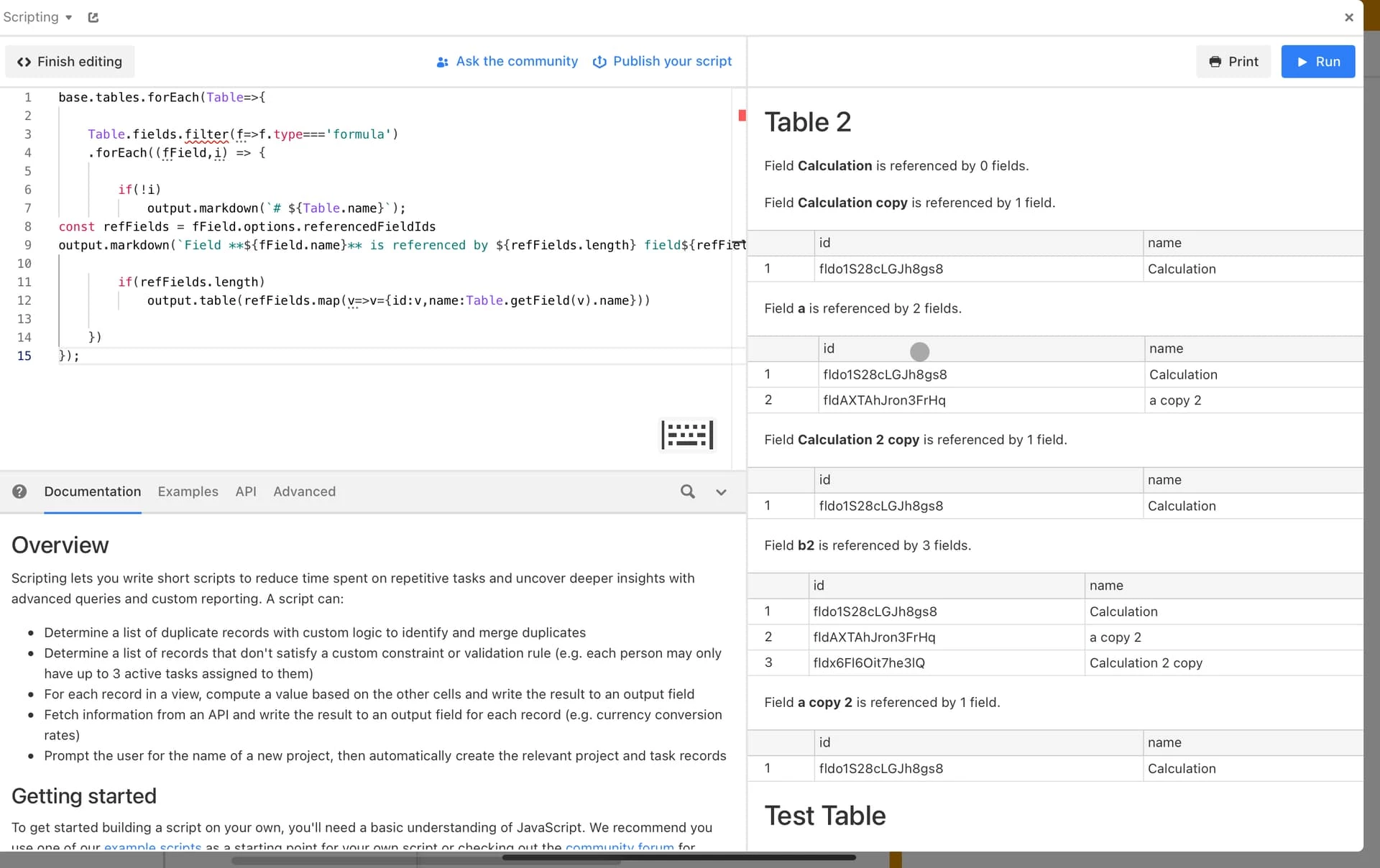It would be nice to have an easy way to see what other fields a certain field is being used in.
Ex: If I have a field called Start date and this field is used in the formulas for three other fields, it would be nice to be able to click on the Start date field and see what those other fields are.
Otherwise, if I need to check where a field is used, I end up having to check all 200 other formula fields in my table (not to mention the other tables in the base that may be using lookup/rollup fields)




